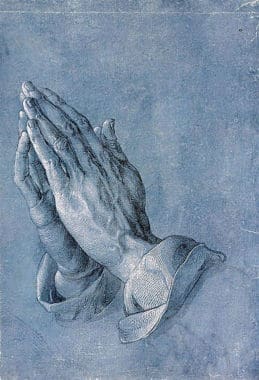Life, As I Find It
In my last post, I recalled how my time as a Baptist actually helped me to become a Catholic – though not in  any way that would have foreshadowed such an anti-Baptist decision. But I learned to respect (even cherish) the Bible and to respect the authority of the church. Both are now vital to me as a Catholic.
any way that would have foreshadowed such an anti-Baptist decision. But I learned to respect (even cherish) the Bible and to respect the authority of the church. Both are now vital to me as a Catholic.
Another lesson I learned had to do with personal spiritual discipline. Admittedly, few Baptists I knew had any clue about concepts like “spiritual direction” or meditation or contemplation – the last two would have sounded suspicious and practiced by The Beatles. But, as a Baptist, I knew we were supposed to have personal spiritual discipline. We were told to pray. A lot. Unceasingly, in fact.
Prayer was essential to personal spiritual health and the health of the church. We prayed for ourselves, we prayed for each other, we prayed for the world – at home and at least four times in church services (at the beginning, before the offering, before the sermon and after before, during and after the altar call). The only praying we didn’t do was to or for the dead. The other group did those kinds of things and they were clearly confused.
Personal spiritual discipline extended to our church-going and service as a priority of life. Being a Baptist taught me that faith really wasn’t about sentimental feelings – unless it was time for the altar-call and seventeen verses of “Just As I Am” – but about doing. The healthy pressure to attend church on Sunday morning for Sunday School and the worship service (and helping with Bus Ministry), Sunday evening, Wednesday evening prayer meeting (or the quarterly business meeting), Thursday night Awana, and whenever else the doors were open was ongoing. And it was a good thing for me. Apart from the value of the teaching, it taught me to resist the feelings of But I don’t want to go – and go anyway.
As a Baptist I truly believed faith without works really was dead. Fortunately, many of the “works” were done as part of “fellowship.” Few groups do “fellowship” as well as Baptists. They seemed to understand the importance of relationships to commitment and growth. After any service or event, the majority of people would hang around to “visit” for ages – adding a half-hour to an hour to the worship service experience. There was no rushing for the exit as soon as the final hymn ended or the last Amen said.
I have said in other contexts how it’s ironic that Catholicism is supposed to be about Community, but tends to be very individualistic (if one were to judge by the scramble to the parking lot even before Mass has truly ended), while Protestantism is supposed to be individualistic yet tends toward Community (if the crowds hanging out and talking in the lobby are an indicator).
Yes, I know: I’m being terribly unfair. No doubt it depends on the church.
So, to summarize: as a good Baptist, I learned how to be a good Catholic by going to church, reading my Bible, praying, working, and evangelizing —
Evangelizing! That was huge for me as a Baptist. And I’ll talk about that in the next post.




